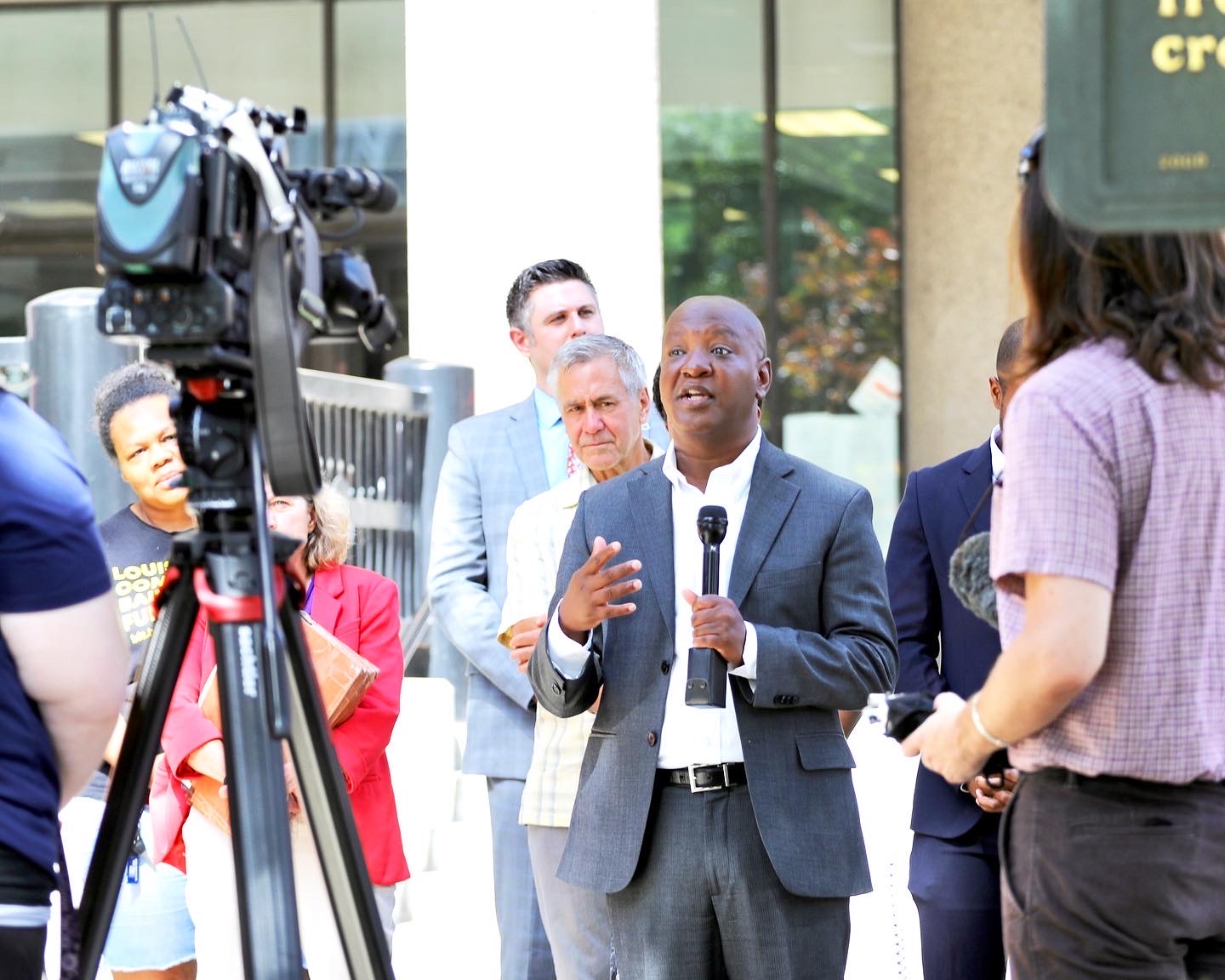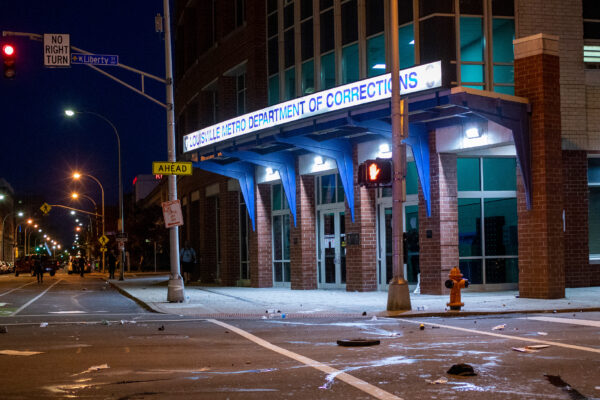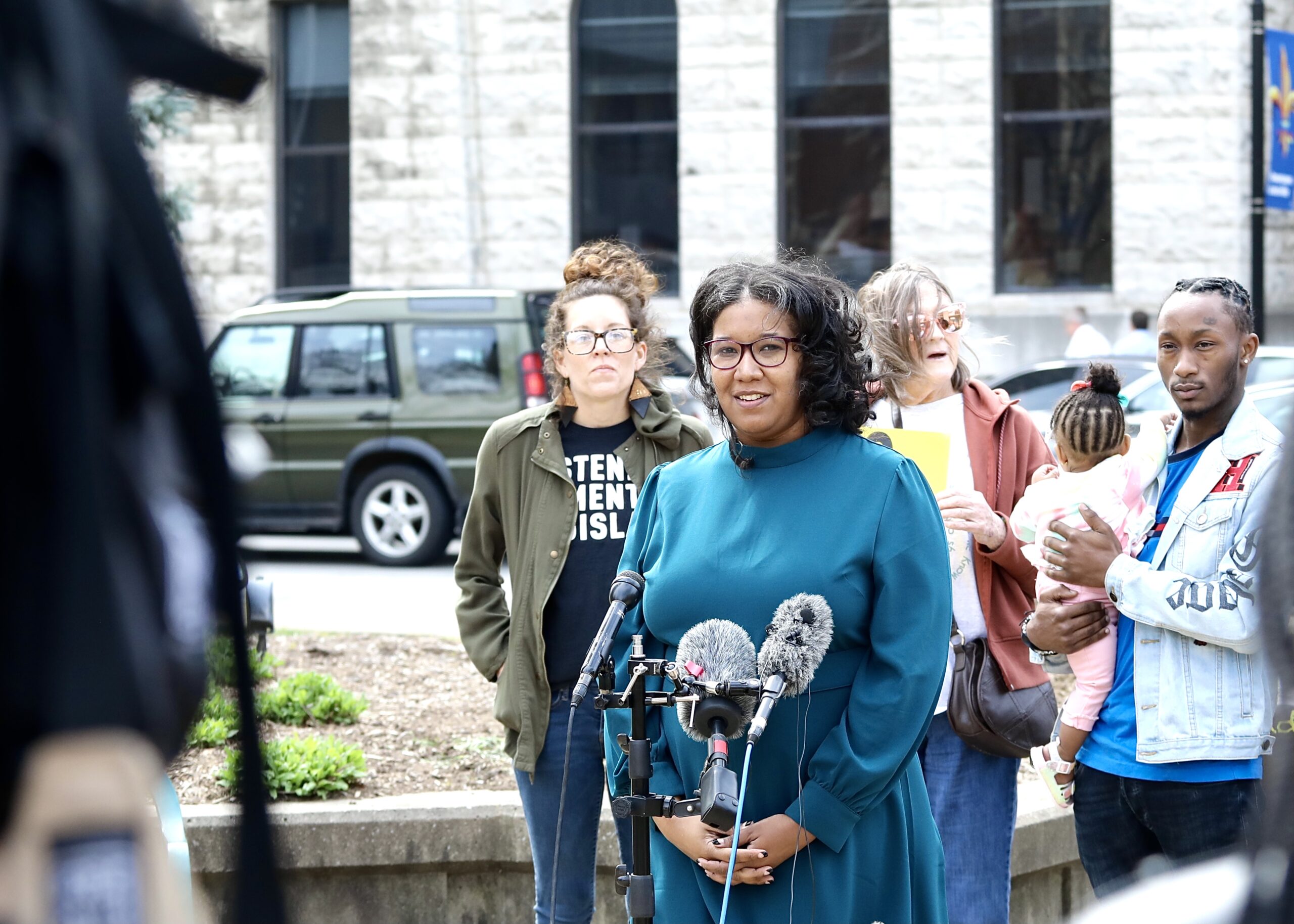One year ago we engaged the Louisville community and joined partners to form a coalition to demand immediate, substantive changes to save lives in Louisville jails. One year later, the community has lost 12 lives in as many months. Louisville's government is overseeing a humanitarian crisis.
When the government chooses to incarcerate a person, it also takes on the responsibility of caring for them. These 12 Kentuckians – moms, dads, siblings, colleagues, neighbors – were given detention, not a death sentence.
Today, we say their names, grieve this loss, and renew our commitment to keep going.
David Dahms, May 2021
Kenneth Hall, November 2021
Stephanie Dunbar, December 2021
Rickitta Smith, December 2021
Gary Wetherill, January 2022
Keith Smith, January 2022
Lesley Starnes, February 2022
Moman Anderson, March 2022
Barry Williams, March 2022
Norman Sheckles, July 2022
Thomas Bradshaw, August 2022
Buddy Stevens, September 2022
Bashar Ghazawi, October 2022
Along with our partners, we have demanded several practical changes that Louisville Metro Council, the mayor, judges, prosecutors, and corrections officials could adopt.
- End cash bail
- Terminate the healthcare services contract with for-profit WellPath and consult with community health advocates that are prepared to serve
- Invest in community services, not a new jail
Ending cash bail is one key step. According to the FOP, nearly 75% of the people detained in Louisville jails are there only because they cannot afford to purchase their freedom. Ending this wealth-based policy would alleviate deadly overcrowding.
PROGRESS
While there is a long road ahead, we have seen some progress over the past year.
 ACLU-KY Policy Strategist Kungu Njuguna speaks alongside coalition partners announcing the amnesty docket, May 2022. ACLU-KY Policy Strategist Kungu Njuguna speaks alongside coalition partners announcing the amnesty docket, May 2022. |
1. Amnesty for people with some bench warrants
We convinced judges to create an amnesty period for some bench warrants. This allowed people to re-docket, recall, or clear their case.
Bench warrants are issued when people miss a court date, which often happens because they can't miss work, access transportation, etc. Most bench warrants are issued for the lowest level offenses and simply create a cycle of incarceration that harms the people involved and wastes taxpayer dollars.
Among those eligible for amnesty, one person had to appear in court 15 times over a case involving restitution of only $12.99, and another had 43 court appearances over $50 in restitution. People should be given a fair chance to correct their wrongs; the answer is not repeated arrests that clog our courts, pack our jails, separate families, and cost taxpayers exponentially more than the original offense ever would have.
It is irresponsible and wasteful to incarcerate people and clog an already overburdened court system for these reasons. This practice creates what is essential a debtor's prison – something that was outlawed by the United States Supreme Court in 1833.
We raised $300k to help nearly 100+ people pay restitution and settle their cases. Clearing cases will reduce arrests and deadly overcrowding. After this success, it’s time to expand the program to more people in Jefferson County and for other county attorneys to take similar action.
2. A seat at the table
Community groups now have four seats on the Jail Policy Committee. Adding community advocates to this committee means they finally have a seat at the table where decisions that affect people's lives – and even their ability to stay alive – are made.
3. Keeping incarcerated people connected with their families and communities
Councilmember Bill Hollander is pushing for free phone calls for incarcerated people in the city's budget. All incarcerated people should be able to freely call their loved ones and stay connected with their community. In addition to simply being the right thing to do, helping people stay connected with create a safer and healthier environment for both incarcerated people and LMDC staff.
Incarcerating fellow human beings should never be driven by a profit motive.
|
|
4. Invest in the community, not a new jail
We pressured Mayor-elect Greenberg to deprioritize building a new jail. We need your help to keep up the pressure so he will fully commit to NO new jail. A new jail would cost roughly $400M. This would never address the root issues driving the deadly conditions in Louisville's existing facilities. We must instead invest in community services and release the nearly 75% of people who are detained only because they cannot afford bail and purchase their freedom.
LOOKING AHEAD
The road ahead is long, but our successes thus far show promise of a safer, healthier future. None of this progress would have happened without the coalition Community Stakeholders to End Deaths at LMDC, your name on our petitions, your phone calls to elected officials, and more.
Community Stakeholders for Change at LMDC is a group of partner organizations and individuals pooling together resources and power in response to the recent rise in deaths at Lousiville Metro Department of Corrections. The coalition includes the following:
American Civil Liberties Union of Kentucky
Kentucky Commission on Human Rights
Louisville Urban League
The 490 Project
Family of Stephanie Dunbar
Better Dayz
Bend the Arc: Jewish Action Louisville
Feed Louisville
Louisville Family Justice Advocates
Louisville Community Bail Fund
Black Lives Matter Louisville
Louisville Showing Up for Racial Justice (LSURJ)
The Bail Project – Louisville
The Kentucky Alliance Against Racist and Political Repression
The Sowers of Justice Network
Louisville Family Justice Advocates
Kentucky Equal Justice Center
National Council of Jewish Women – Louisville Section
Jewish Community Relations Council


 ACLU-KY Interim Executive Director Amber Duke speaks at a press conference and vigil, February 2022.
ACLU-KY Interim Executive Director Amber Duke speaks at a press conference and vigil, February 2022.